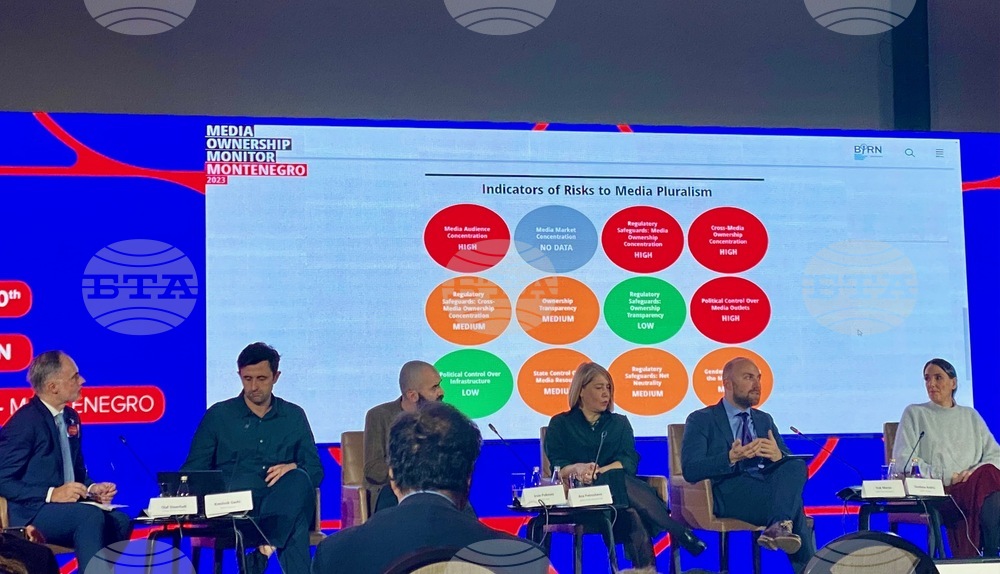site.btaLack of Media Ownership Transparency and Attempts to Control Content Remain Major Problems in Western Balkans Media


An EU-Western Balkans Media Literacy Conference began on Thursday in Podgorica, Montenegro. At the forum, opinions were presented about the media in the region: the challenges they face related to the manipulation of information, their transparency, how to protect them from artificial intelligence, as well as media literacy initiatives.
An important focus was the monitoring of media ownership in the Western Balkans. Who is the owner, who sponsors them, these are questions that often remain unanswered, stated the participants of the event.
Transparency is the main problem of the media in Kosovo. Statistics show that 82% of people trust TV channels.
Gordana Andric of the Investigative Reporting Network (BIRN) in Serbia gave the example of the regionally popular PINK TV station, whose owner also had many other businesses. In Serbia, however, this information is not available, Andric said.
The situation and history in Bosnia and Herzegovina is very complicated. There is no media law in the country. Older people watch more TV, while young people are on the Internet. Media owners are not necessarily visible or known. Often, the question "who is the owner", receives the answer: "We do not owe you an answer, because there is no law that obliges us".
The media market in Albania is downright crowded. This raises the issue of media ownership and control over the concentration of media ownership, stressed another participant in the conference.
Political control over the media is also a long-standing problem. Even when media legislation exists in some of these countries, it rarely sanctions cases of political control, especially when it is not quite direct.
The concentration of media ownership in Montenegro is a complex issue as there is no reliable data to measure this, said Vuk Maras from BIRN. He added that in practice, many media owners have other main businesses and this information is not easy to come by. The mystery is even greater with the media on the Internet. The murder of an editor-in-chief, threats to journalists, attempts by the state to control media content, these are essential problems of the media environment in Montenegro, he added.
In the Republic of North Macedonia issues can be summarized as delayed reforms in the media. Political control and manipulation have largely decreased since 2017 thanks to the law. Ana Petruseva said that the print media in the country are facing enormous difficulties. Therefore, in 2018, the state began to support them financially. Millions are spent annually on television channels. The online media are now also asking for support, as currently they do not receive subsidies from the state.
The theft of information, copy-paste journalism, and similar issues are lowering the standard of media and are a serious challenge to those who persist in developing quality content, was another summary made during the conference, which is still ongoing.
/PP/
news.modal.header
news.modal.text